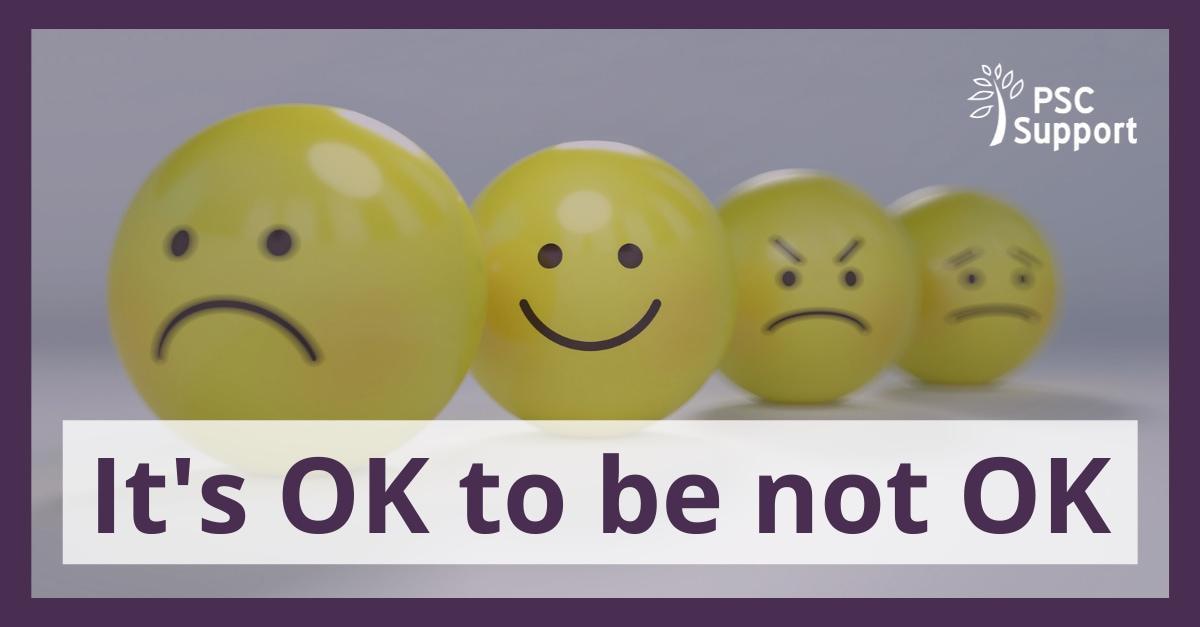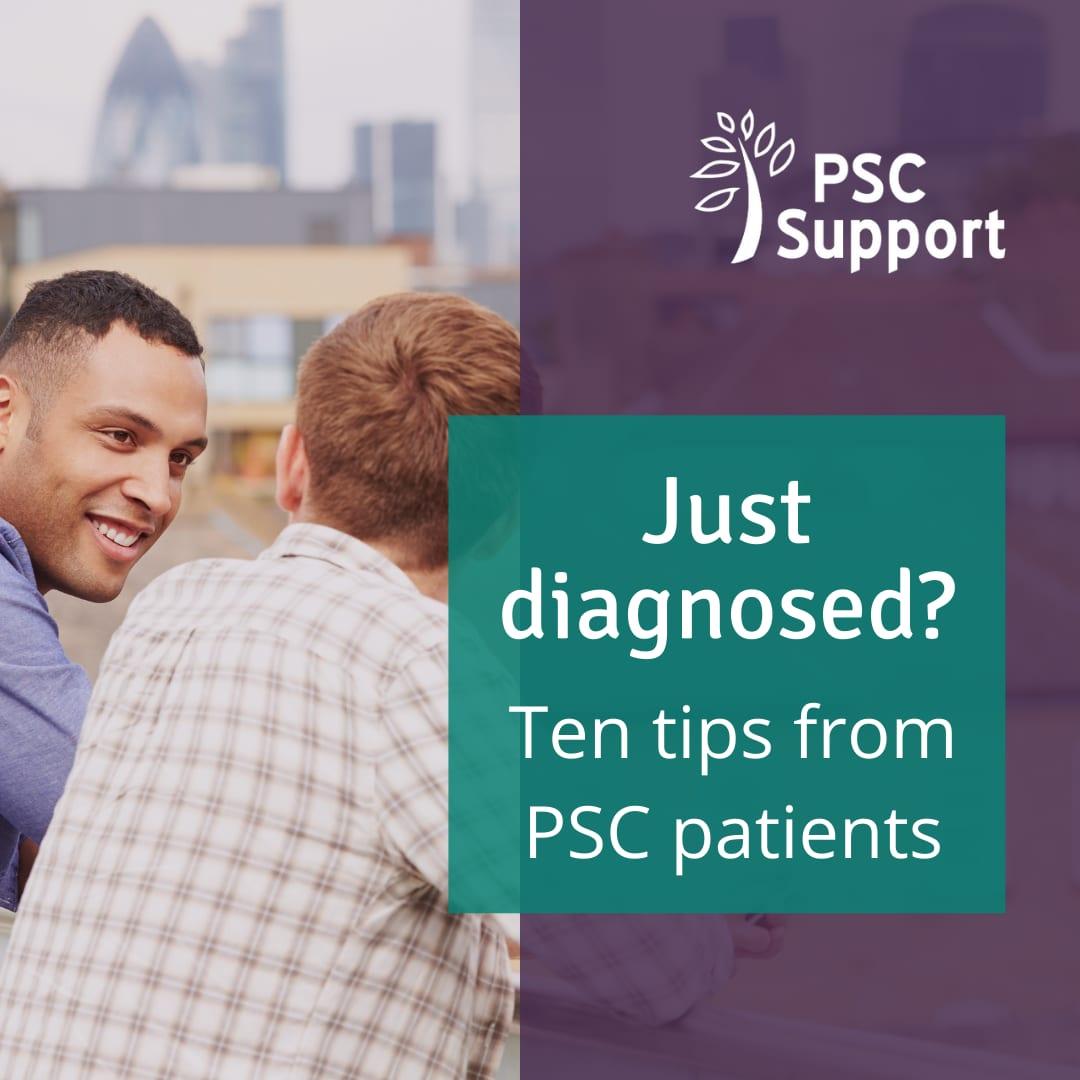A diagnosis of PSC
A diagnosis of PSC can come as a huge shock and even a huge relief to finally have an explanation for unexplained symptoms. Patients and their families go through many emotions as they come to terms with a diagnosis of PSC. It can be a confusing, bewildering and emotional time and can be one of the most difficult aspects to cope with 35 . You may find your emotions change, and you may have good and bad days.
But you don't look ill?
PSC is mostly invisible – it is not always obvious you are ill unless you happen to be experiencing jaundice. This means that people around you don’t realise you are fatigued, in pain, itching like crazy or generally feeling unwell. The result is that we may believe that our friends and family simply don’t understand what we are going through, which can be an isolating experience 35 .
So you have a liver disease?
People around you bring their own understanding and assumptions about PSC. Because PSC is a liver condition, they sometimes incorrectly think it is related to alcohol. It isn’t at all! PSC is immune-mediated: for as yet unknown reasons, the immune system damages the bile ducts, which causes liver problems. The stigma associated with liver disease adds another unnecessary difficulty. It’s not always practical or the right moment to explain PSC face to face, so we’ve created a useful graphic you can share with your friends and family on Facebook or email.
Symptoms get in the way
People with PSC experience many symptoms: the most commonly reported symptoms are fatigue, pain and itch 35. These impact on everyday life, and can be unpredictable, making it difficult to carry out daily tasks and to plan ahead. Some people with PSC also find they have to make adaptations to their lives such as cutting down hours at work. All of this has huge implications and can impact on relationships, finances and self-confidence. Some people with PSC find that they need to change the way they work, which can impact financially. Reduced income can impact on family life and ability to take part in leisure activities. In turn this can impact on relationships.
Not everyone has heard of PSC
PSC is a rare disease. Understandably, this means that not all doctors are familiar with PSC, especially GPs and gastroenterologists. A challenge for people with PSC is that they need to become an expert in their own condition. Because PSC is complex, and there is little strong evidence about how best to manage PSC, it is hard for even the leading experts to answer our questions and decide on the best way to manage someone’s condition or progression of disease. We strongly recommend that you see a doctor experienced with PSC if you are getting more symptoms.
Uncertainty about the future
One area that people find difficult is dealing with the uncertainty of what will happen in the future. PSC is unpredictable, and often there are simply no answers to the questions we have. Handling the uncertainty is a real challenge, and PSC has been described as ‘living with a ticking time bomb’ inside you. Progress is being made to remove some of the uncertainty but it is still reported by patients and families as being a significant issue 35.
Thoughts and Feelings
Dr Sarah Afuwape, Principal Health Psychologist at the Royal Free described an ‘emotional pathway’ in PSC:

People can be in denial, sad, angry, frustrated and many other emotions as they come to terms with their diagnosis and at any stage of the disease, and these are all perfectly normal thoughts and feelings to have.
Our emotions can impact on our thinking and behaviour, and the way we think about PSC and our quality of life. For example, when an individual feels anxious or low in mood, it can impact on their behaviour such as stopping work or withdrawing socially. This in turn can reinforce thoughts like 'There is no hope for me,' or ' I can’t do anything!' which in turn affects how we feel. It’s important to be mindful that just because we think something, it doesn’t mean it’s true. Not all thoughts are accurate in reality.
Dr Sarah Afuwape’s presentation on the Psychosocial Effect of Chronic Illness:
Accept that you have PSC
Psychologists refer to a five-stage framework for grief and loss defined by Kubler-Ross to understand the process people affected with PSC might go through from diagnosis to acceptance.
The five stages of the Kubler-Ross framework are:
- Denial
- Anger
- Bargaining
- Depression
- Acceptance
People go through the stages in any order, and can jump back and forth, and even experience more than one stage at once. It is important to understand that it is normal to go through these stages.

Some people get ‘stuck’ in the stages and find it difficult to move on. Once you get to the point of accepting what has happened to you, you can move on and this is very positive. It means that you will be able to live your life, and not let the thought of PSC get in your way or stop you.

